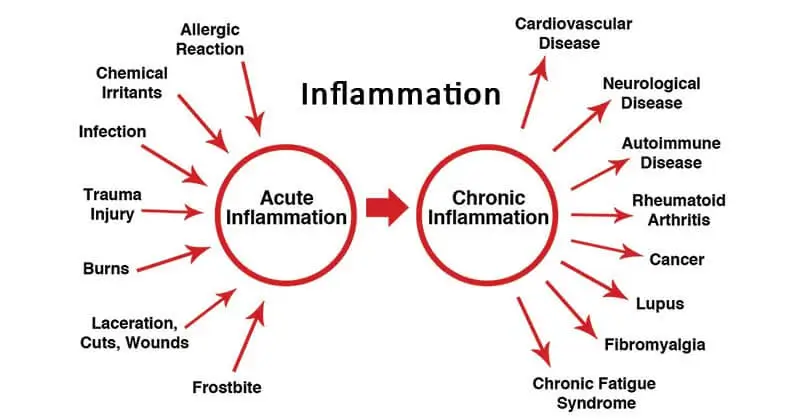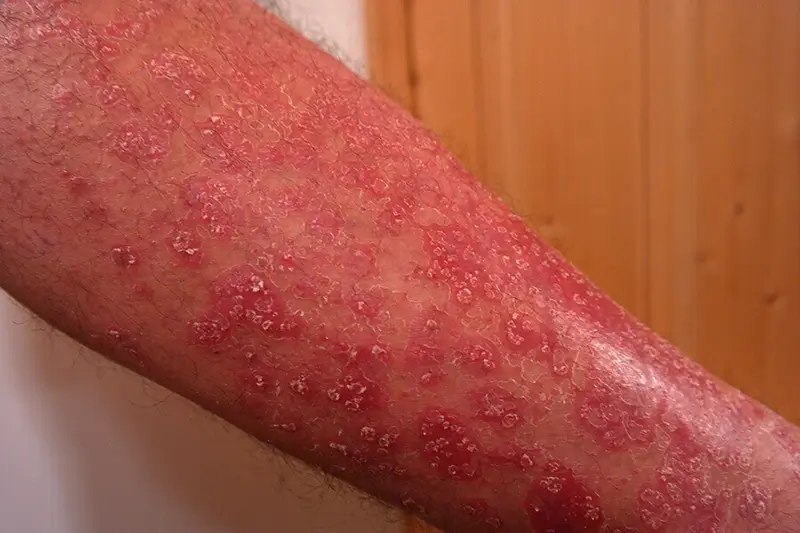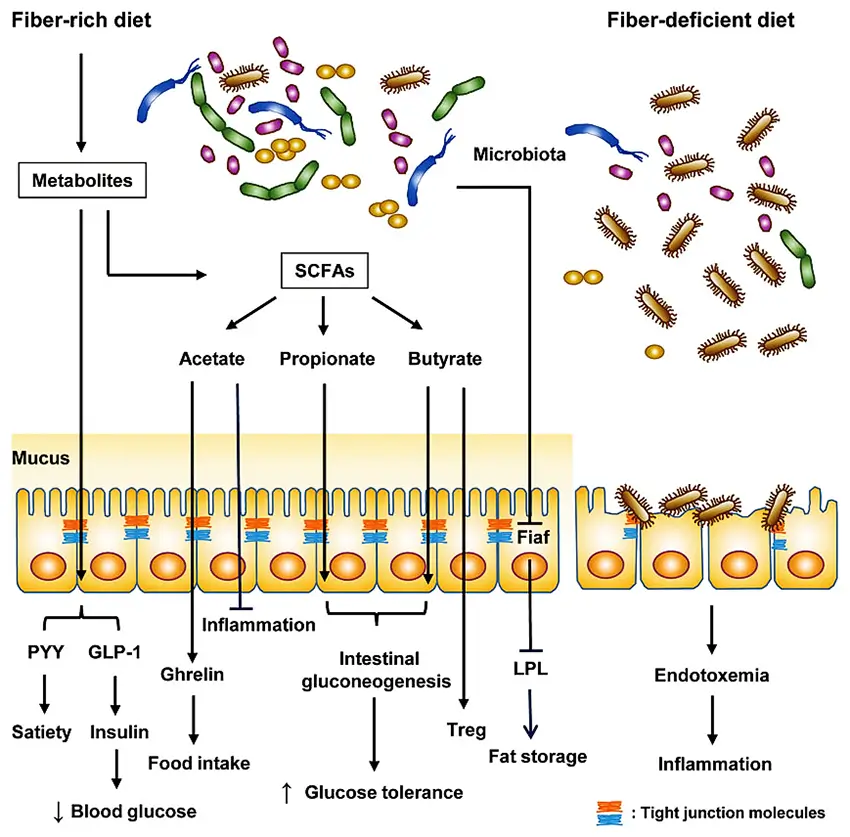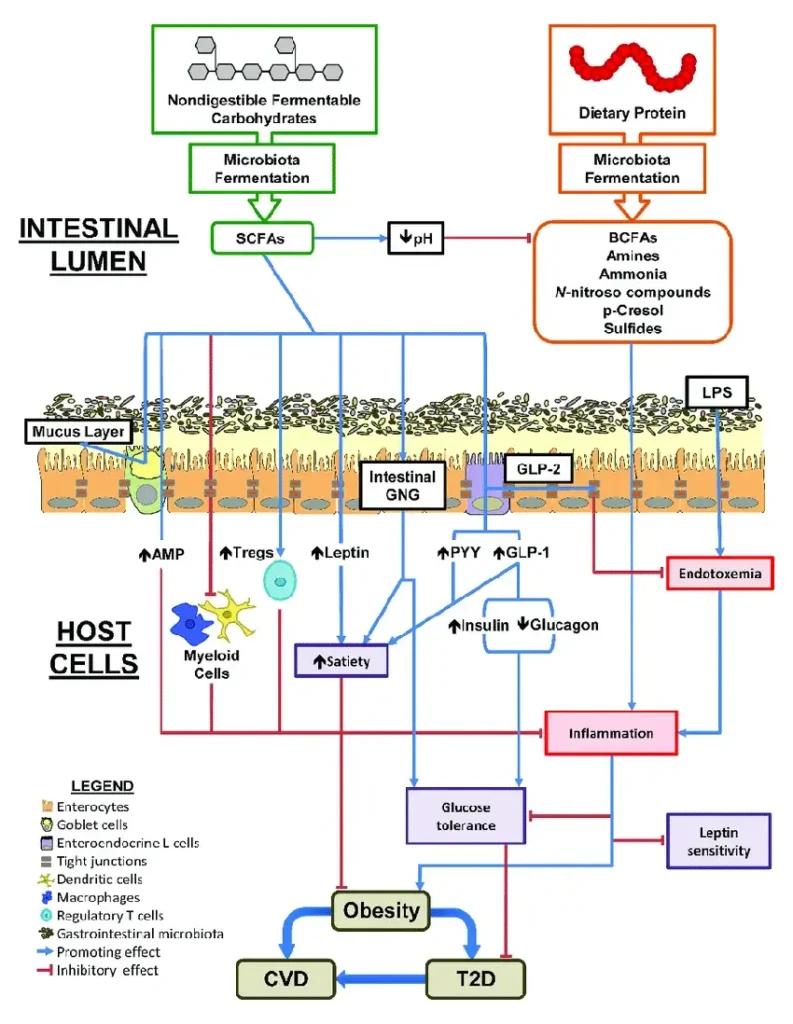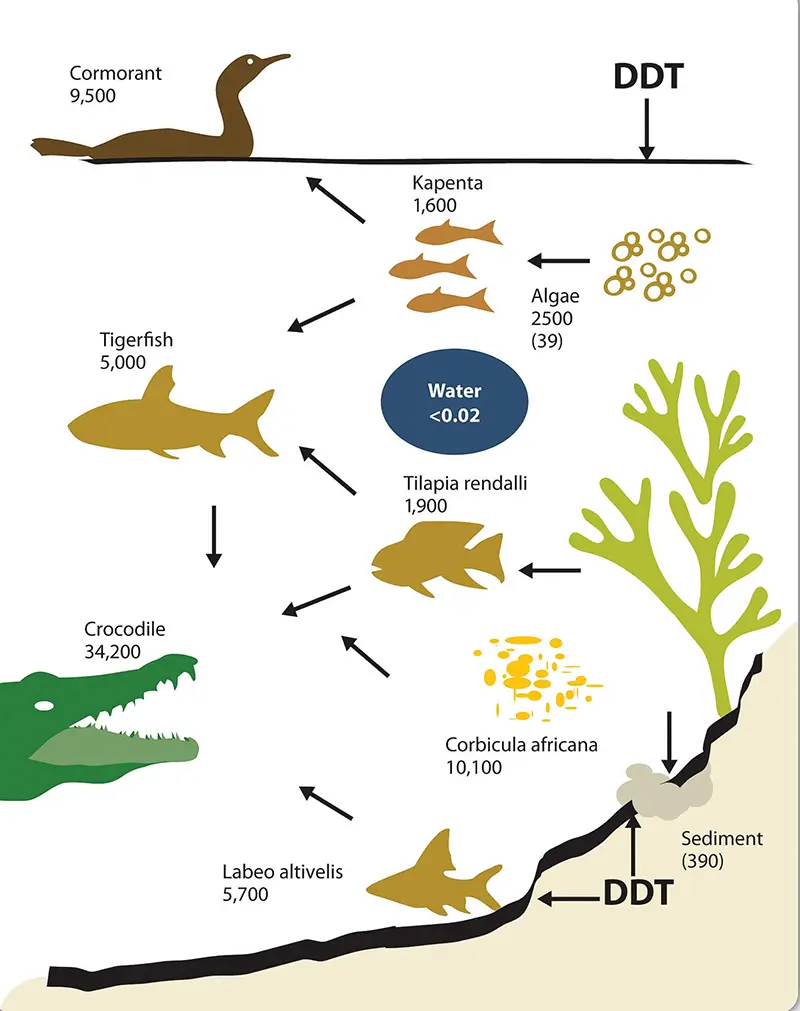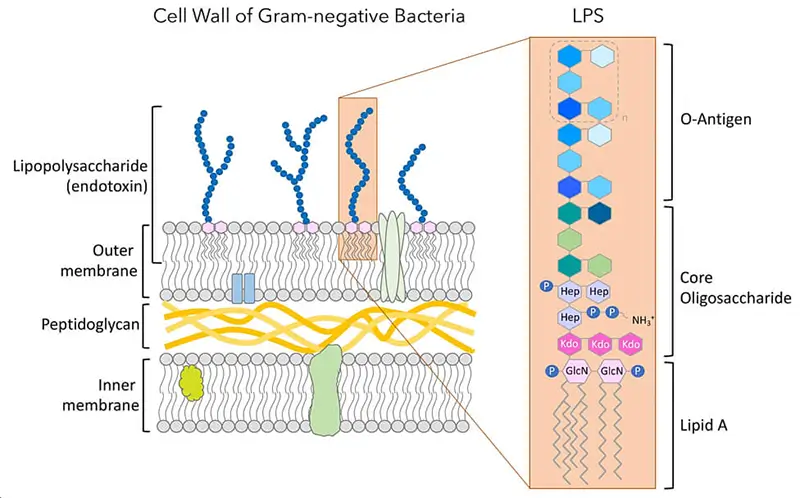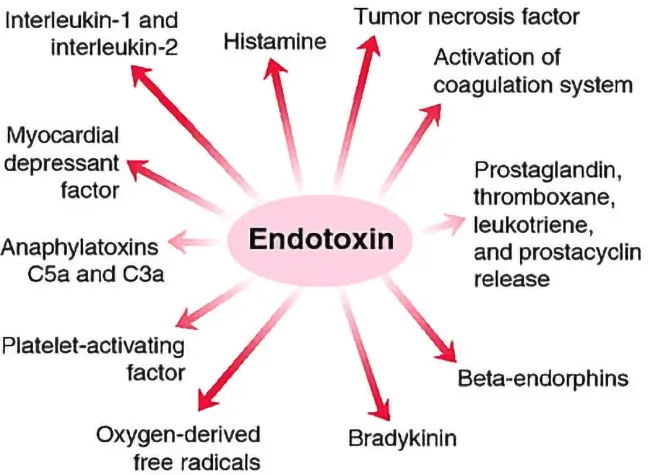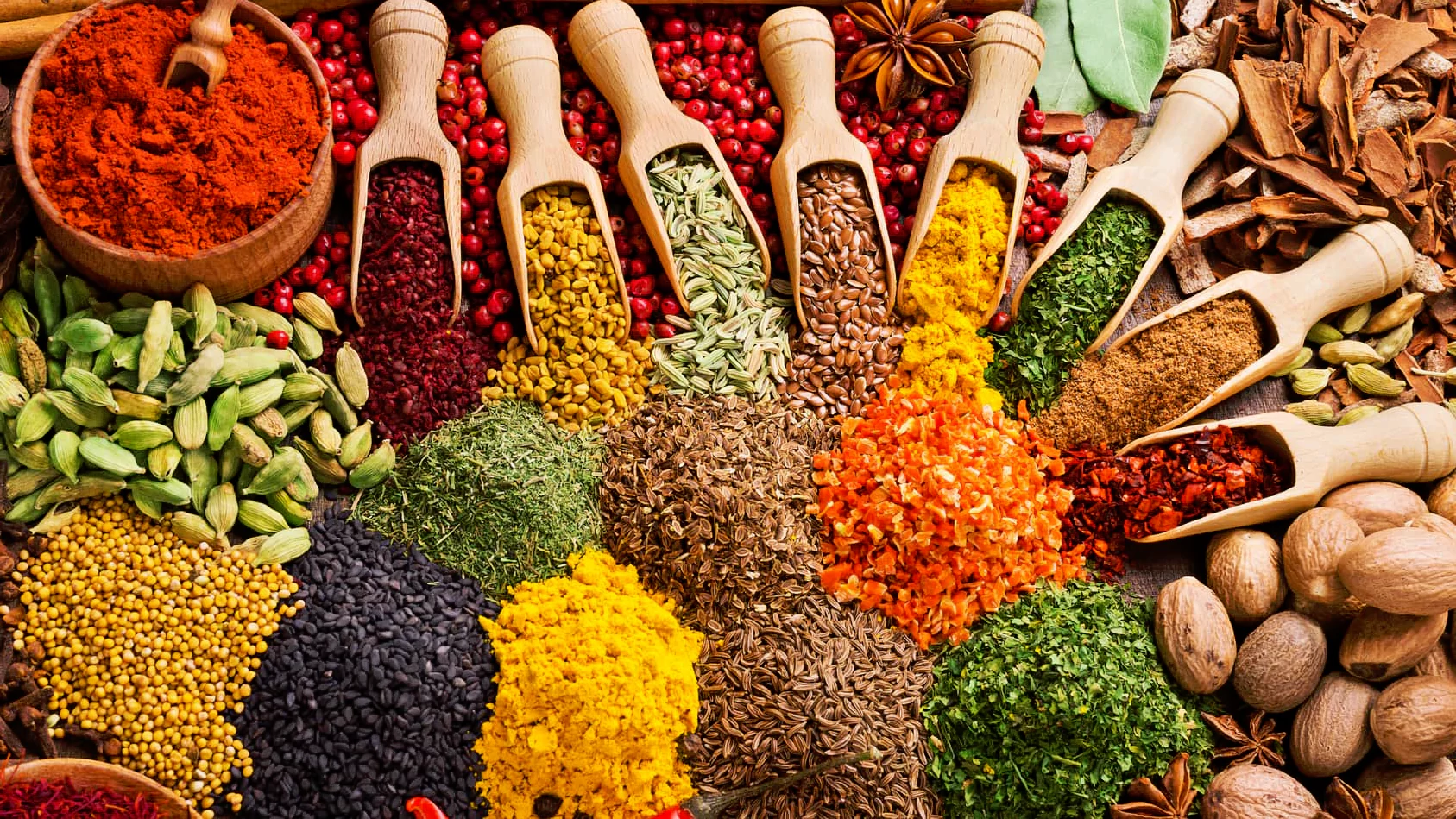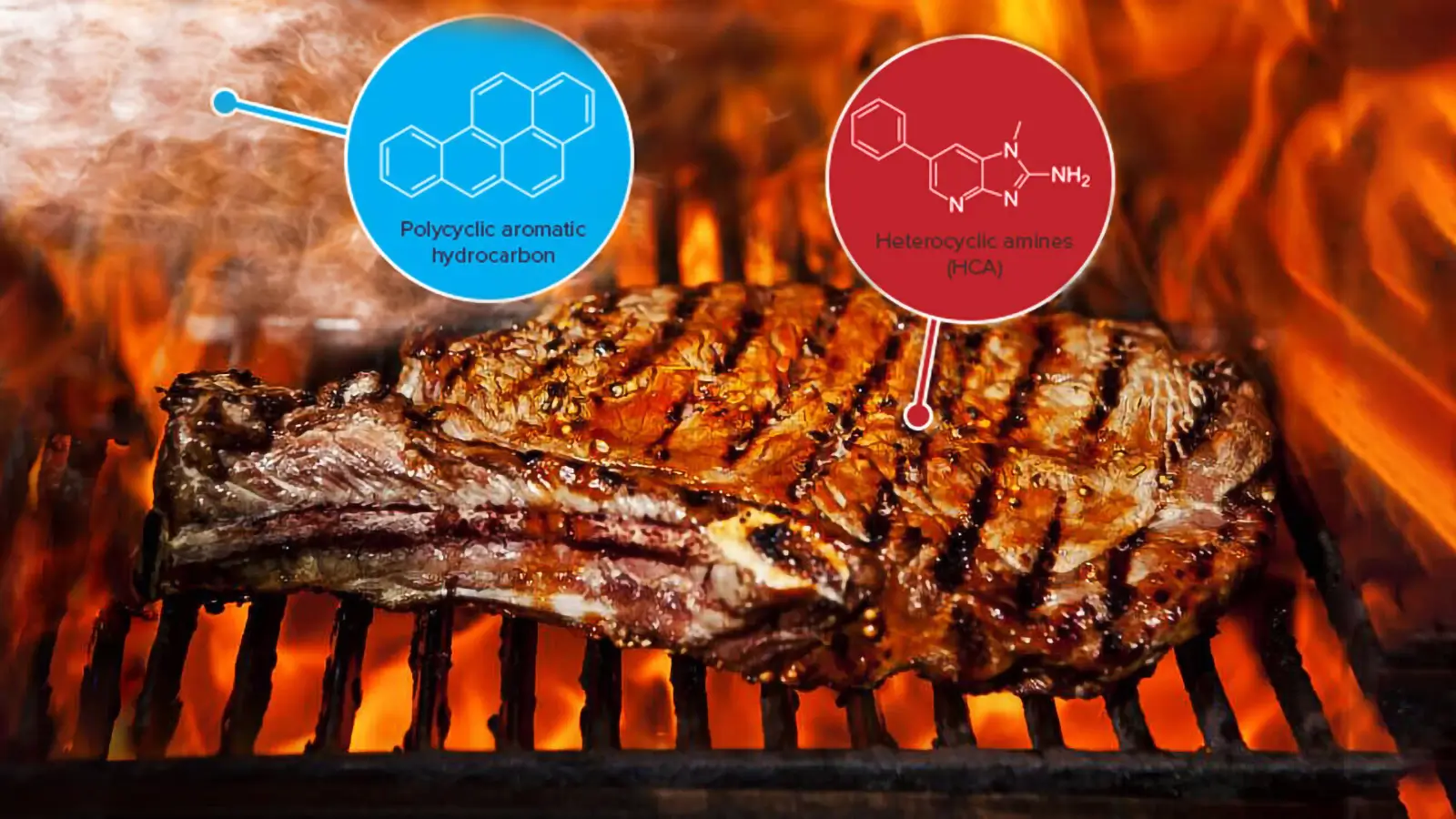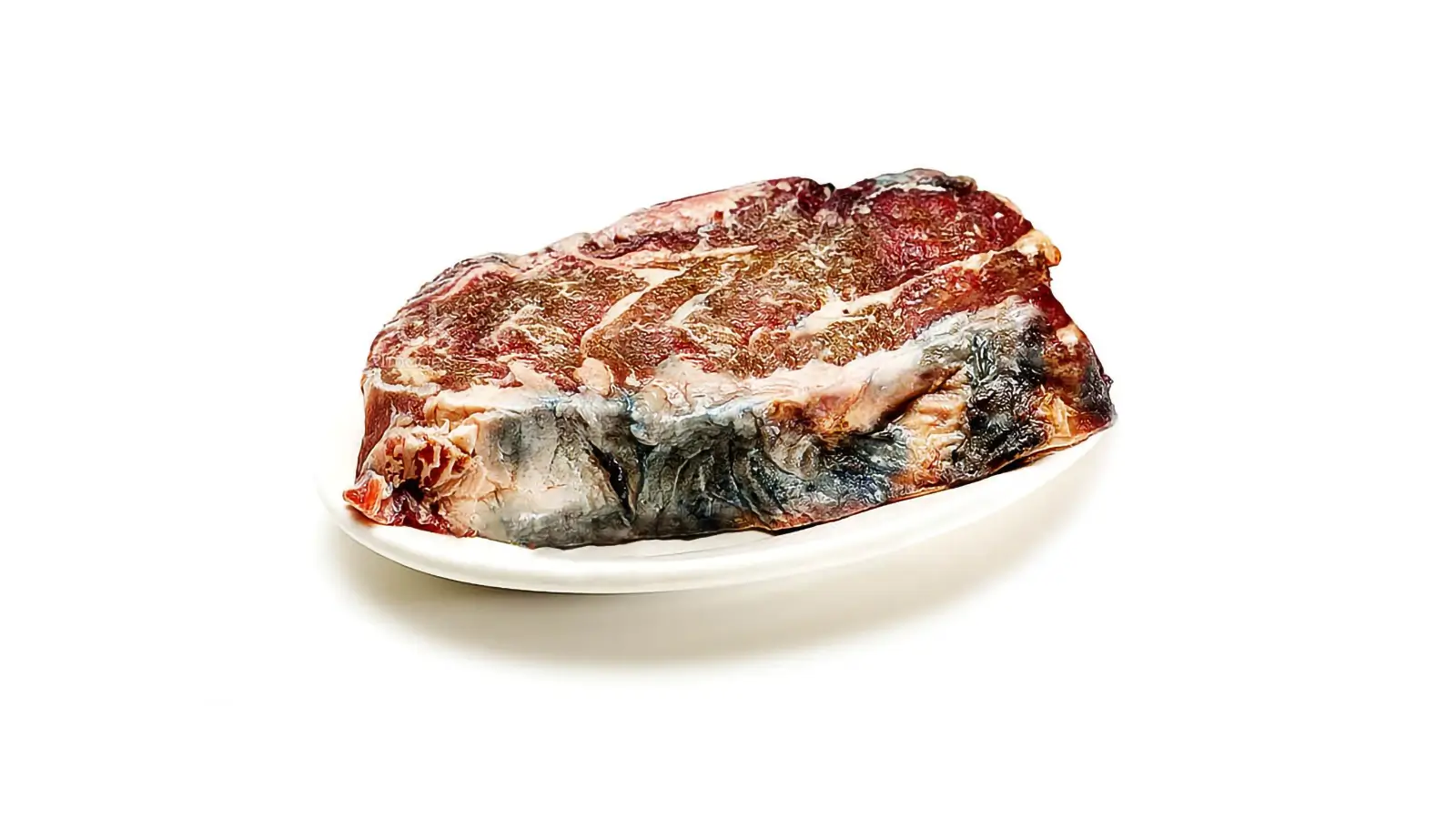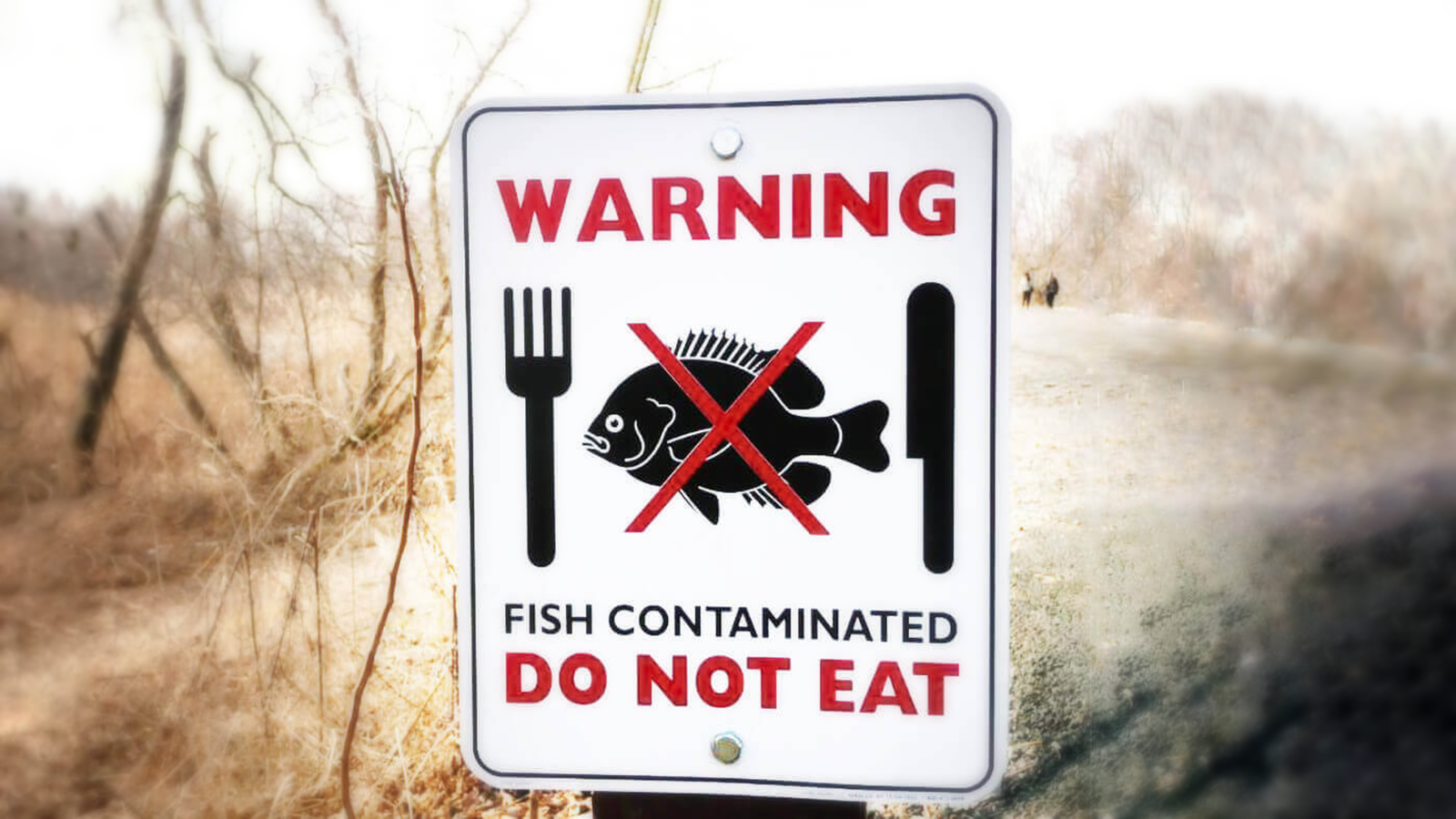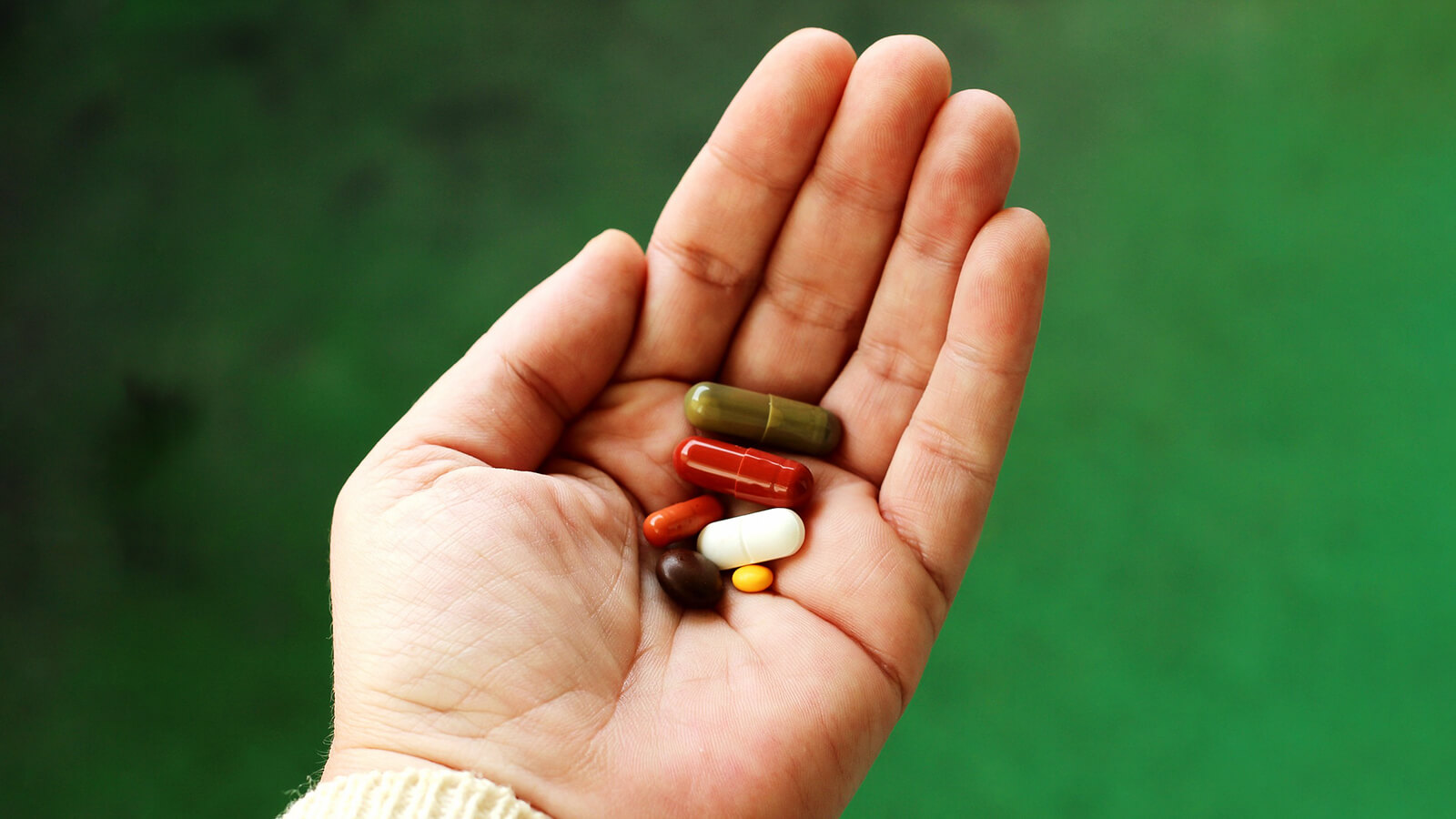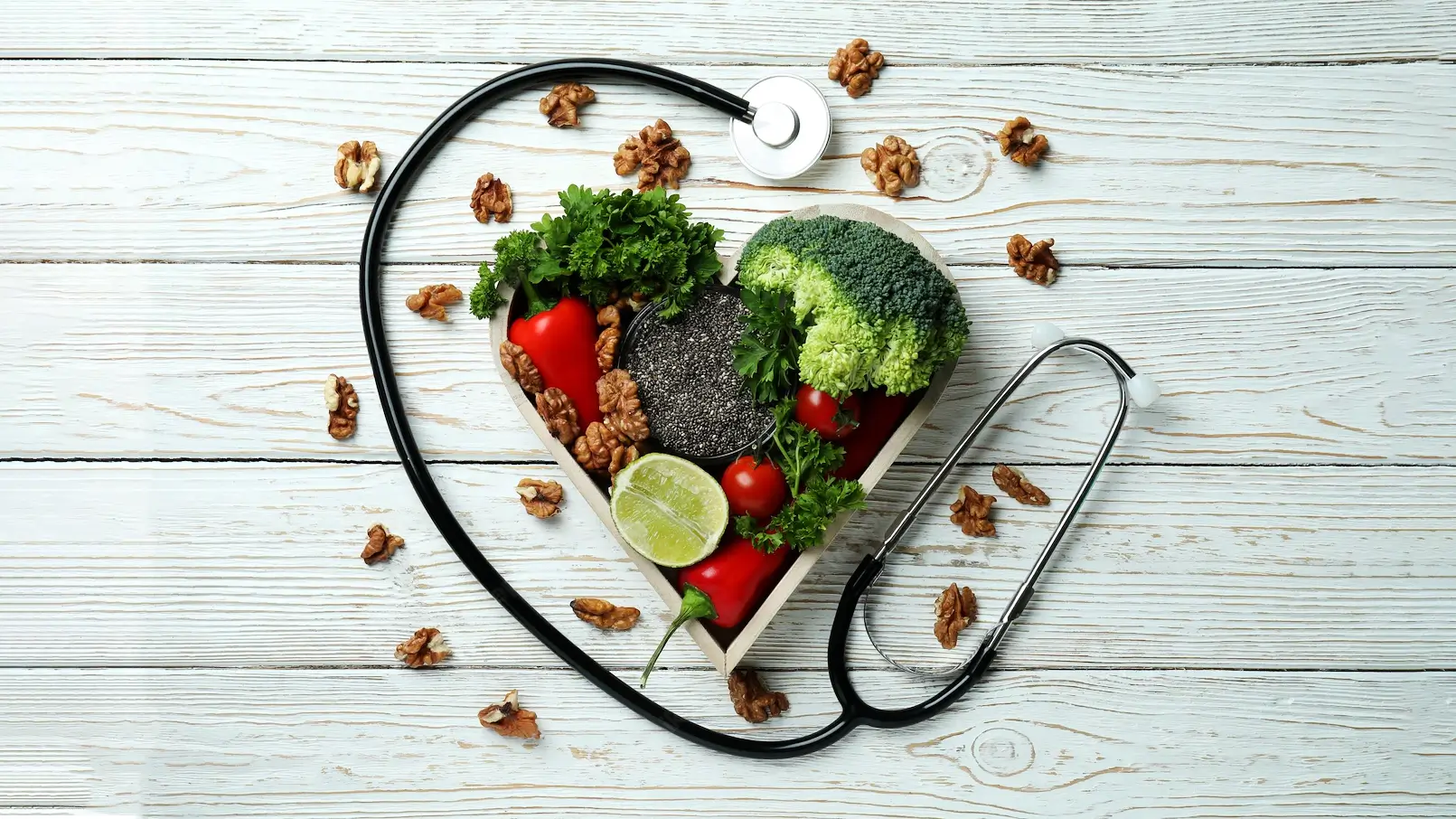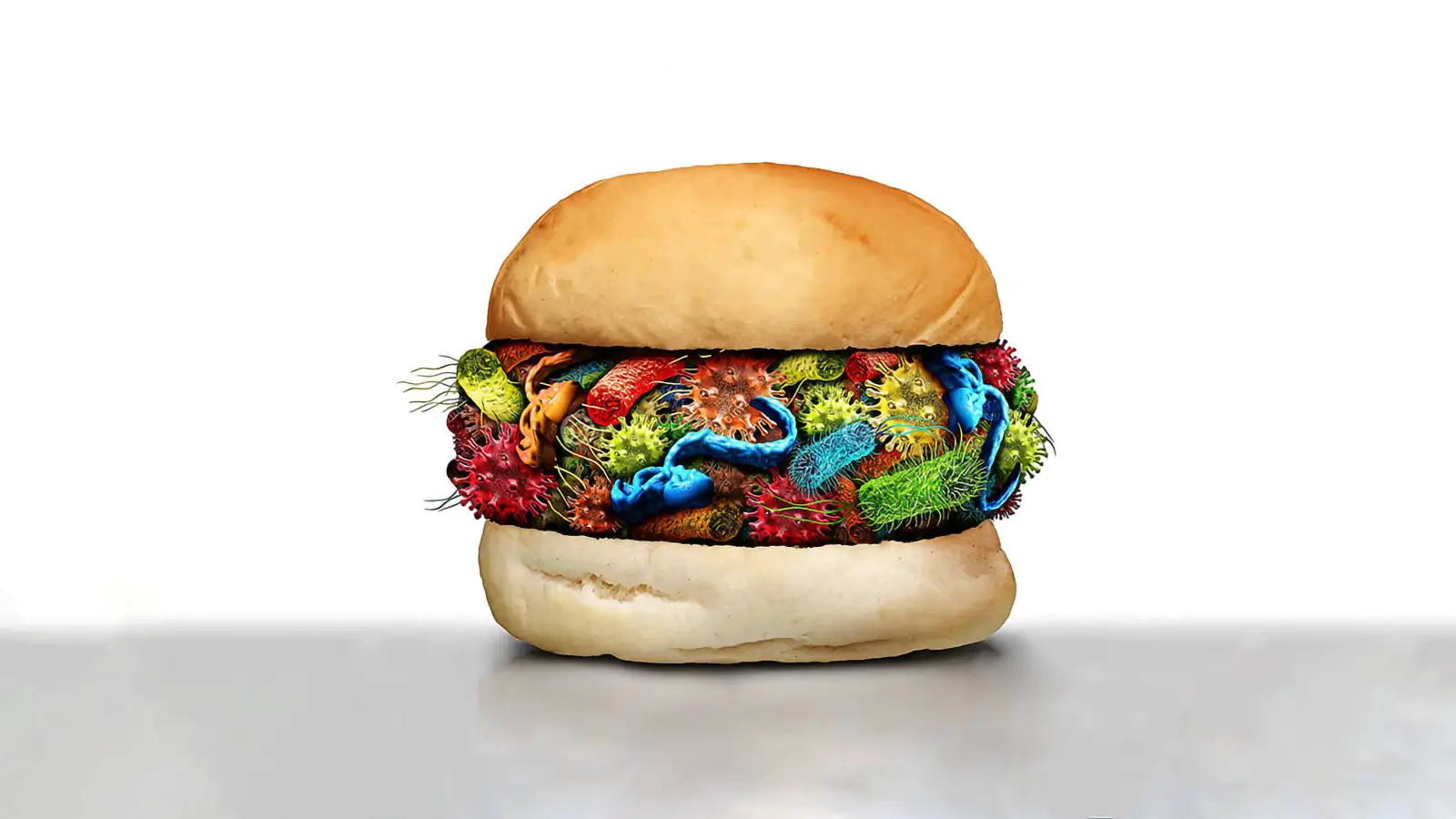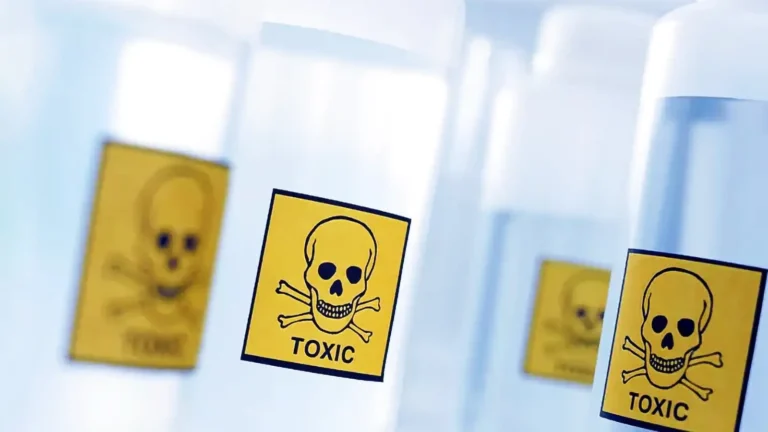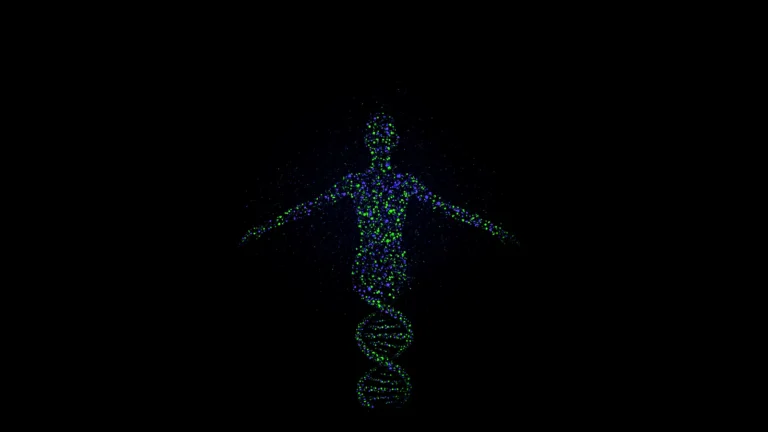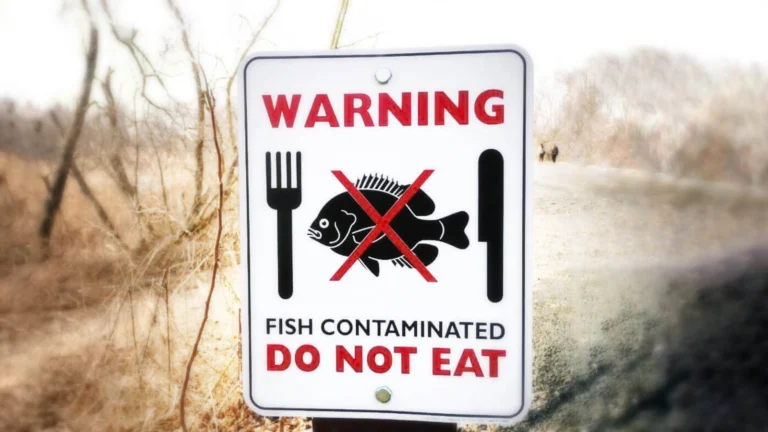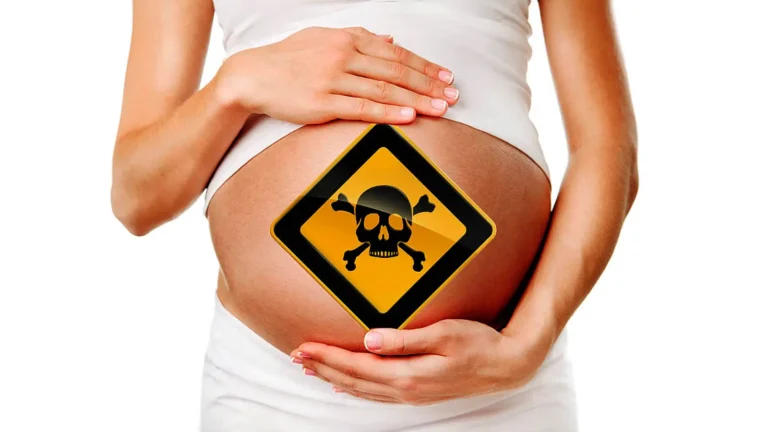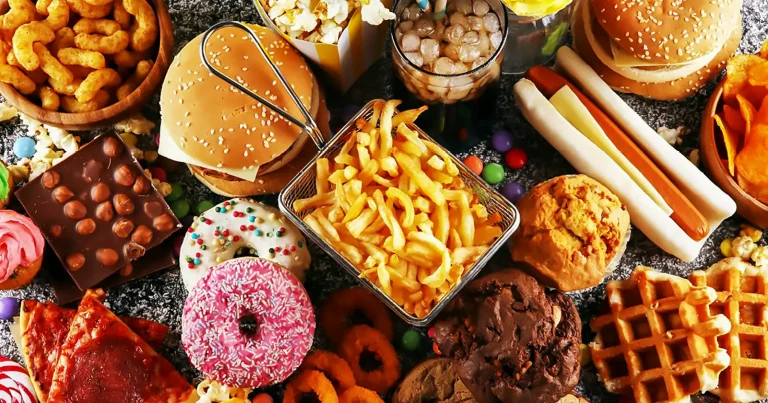Inflammation and diet- Vegan argument
We evolved to receive a burst of protective antioxidants when we eat but there are not present in meat. Inflammation and diet have a high level of correlation.
Milos Pokimica
Written By: Milos Pokimica
Medically Reviewed by: Dr. Xiùying Wáng, M.D.
Updated June 9, 2023When our DNA gets damaged no matter what is the cause (toxins, free radicals, viruses, etc.), the visible effect would be an increase in inflammation. Inflammation response is our body’s defensive mechanism. It is not the same as infection and people usually mix these two together. Pathogens will create inflammation as a defensive response from our body’s immune system but they are not the source of inflammation. Inflammation and diet are also correlated. The source of inflammation is DNA damage. Anything that damages our cells is pro-inflammatory including pathogens, free radicals, and toxic substances of a different kinds. If our immune system malfunctions and starts to attack our own cells the visible effect will be an increase in inflammation.
All of us have some level of normal inflammation all the time and suffer from DNA damage all the time. That is the reason why medical doctors talk about markers of inflammation in the body. They have a range that is considered to be normal. There is oxidative damage that is a result of natural cells’ metabolism of energy, there is a low level of pathogens that our immune system deals with on a daily basis and there are always some toxins that are present in our body. This “normal” inflammation will cause a disease that we know as the aging process.
Besides this, all of us could have acute (short time) inflammation for different reasons. For example, we can get a bacterial infection. It would cause pain and other symptoms and we would be aware of it.
But there is another type of inflammation. The type that combines both of these. And that is chronic (permanent) inflammation above the normally accepted levels that could be present without pain or visible effects over an extended period of time. It would still be there and we would have an increase in our DNA damage and as a result, at the end stage, we would have some disease as a consequence. For example, we might get cancer or just increase our rate of aging.
The higher the overall inflammation the more DNA damage, the shorter the life, the greater the chance of disease. Ideally, we would have no inflammation and would have no DNA damage, and would live forever but that is not possible because of normal cellular metabolism.
Almost all chronic diseases are associated with chronic inflammation from cancer, to autoimmune diseases, diabetes, and cardiovascular disease, and basically most of the diseases ever tested.
That is because, and people don’t understand this, inflammation is not a disease by itself. It is just a defensive reaction of the body. It is a biomarker that tells us how much destruction of our DNA we have inside us. It is an immune system response that could be lowered artificially with anti-inflammatory medications. Lowering inflammation artificially if we don’t deal with autoimmune diseases and malfunctioning of the immune system will just make things worse. It would be the same thing as lowering body temperature when we have the flu. Would that make a flu virus go away or would just weaken our immune system’s defensive mechanism?
When we deal with chronic inflammation we have to eliminate the root causes of that DNA damage not just inflammation.
The way diet can cause an increase in inflammation is from two main reasons.
- It is by itself pro-inflammatory, meaning it has toxins, chemicals, dead bacteria, and mutagens.
- If it does not cause a spike of inflammation by itself, it does not prevent the inflammation either.
Animal products will cause both effects.
A big chunk, around 70 percent of our immune system is in our gut and most of our lymph nodes. There are thousands of different types of bacteria in our intestines but there are two major basic types of them. Two major groups are different from one another. Probiotic ones metabolize fiber and live in symbiosis with our body and the ones that decompose the meat. If bacteria feed on meat in sense our tissue is a lump of meat too. Unlike carnivores, we have evolved for millions of years of evolution to eat whole fiber-rich plant foods. When we eat fiber we feed probiotic bacteria and they multiply.
They are not so aggressive to our organism. The immune system will have an easier job of fighting them, they will not secrete dangerous endotoxins into the bloodstream and there will be less damage overall and inflammation will decrease (Awika et al., 2018), (Telle-Hansen et al., 2018). The result of fiber consumption is an increase in health and lowering of inflammation while animal products will feed bacteria that putrefies the meat and will increase inflammation. Eating meat and animal protein will create a higher level of inflammation in the gut just by that mechanism.
Then there are some toxins and pollutants that are present in the meat due to bioaccumulation in the food chain. All toxins that are in the environment no matter if they are human-made or not that are heat resistant and chemically stable will bioaccumulate. Organisms are like filters. They filter everything that exists both good and bad. The situation would not be even so bad, but there is one more process called biomagnification. We all know about the accumulation of mercury in tuna fish (Wu et al., 2019), microplastic (Barboza et al.,2018), or pesticides (Zennegg, 2018). There are hundreds of thousands so far known different persistent environmental pollutants that will accumulate in the tissues. Then If we understand the food chain, the accumulation of toxins gets hundreds of times worse as we move up (Gasull et al.,2011). So what happens is that when small fish get eaten by big fish, all of their toxins get passed into the bigger fish. Eating plant food is essentially the only way to lower our toxic load on top of lifestyle interventions like quitting smoking and avoidance of alcohol and other toxic substances. More than 70% of all pesticides we get from a diet, and people do not understand this, are ingested through meat consumption. Animal feed is also sprayed and pesticides accumulate in animal tissues and are heat resistant. Washing apples to avoid eating them is just not effective if our diet is dominated by animal products. These persisting toxins are fat-soluble and cannot be metabolized or broken down.
Eating a vegan diet, or in other words, a diet low on a food chain is therefore protective because when we go low on a food chain we will lower our toxic load and lower our DNA damage, and would have lower inflammation.
One more reason why animal products and not plant foods are much more inflammatory is dead bacteria. There is a high level of putrefying bacteria in meat and what people don’t understand is that even if we kill them by cooking there are still toxic. The bacteria will be destroyed but not completely and chunks of them will remain and we will not be able to cook them down any further. Some of the world’s most dangerous poisons are these endotoxins of dead meat bacteria. They are fat-soluble and will be absorbed into our bodies after meat consumption creating inflammation (López-Moreno et al., 2017).
On top of this, the process of cooking the meat and animal protein will create mutagens just by itself by breaking the molecular structure of amino acids and will raise inflammation.
Besides being pro-inflammatory by themselves the second biggest reason animal products are inflammatory is that they don’t have anti-inflammatory antioxidants and other phytochemicals in them. Our body has evolved to expect a burst of antioxidants every time we eat. Naturally, food is a package deal and in whole food, there are not just calories but fiber, micronutrients such as vitamins and minerals, and a lot of antioxidants. Our body has evolved to receive a burst of protective antioxidants anytime we eat but there are not present in animal foods. The end result is a postprandial (post-fed) increase in inflammation (Meessen et al., 2019).
A vegan diet unlike a standard American meat-dominated diet will usually just be neutral and would not directly inflict damage. For example, refined sugar, starch, refined flour, and refined oil are all vegan, and will not cause severe inflammation spikes directly. They would not feed dangerous bacteria in the gut. They would not directly be pro-inflammatory at the same level that meat is but at the same time they would not prevent inflammation either. There would be a postprandial rise of oxidative damage due to regular cell metabolism and the creation of free radical damage in the body. The way our body has evolved to fight off toxins and free radical DNA damage is to use antioxidants and other nutrients found in food. My recommendation is to have at least 25,000 units of antioxidants in the ORAC scale a day for vegans, and for non-vegans, you will need much more than that just to fight the postprandial rise of oxidative damage from all of the animal products you are eating. Then there are toxins in the environment and mutagens plus most of us have some bad habits like smoking and drinking. This article is written just as a form of introduction to the subject for people to have a basic understanding of these issues.
A vegan diet just for itself as a form of a diet is pure junk. Oil and sugar are both vegan products. A whole food plant-based diet with optimized levels of micronutrients is the only diet that can help us to lower chronic inflammation, and prevent a wide range of diseases.
The very important risk factor in cancer, our number two killer, is chronic inflammation and impaired immune system. Most of the population today has high levels of chronic inflammation. Then there is on a wide population scale the lack of some essential micronutrients (essential and some important non-essential micronutrients, not calories) and antioxidants.
On one hand, we have inflammatory compounds, toxins, and mutagens but on another hand lack micronutrients and antioxidants. Also, then there is a chronic elevation of cancer-promoting hormones like IGF-1 and estrogen.
References:
- Awika, J. M., Rose, D. J., & Simsek, S. (2018). Complementary effects of cereal and pulse polyphenols and dietary fiber on chronic inflammation and gut health. Food & function, 9(3), 1389–1409. https://doi.org/10.1039/c7fo02011b
- Telle-Hansen, V. H., Holven, K. B., & Ulven, S. M. (2018). Impact of a Healthy Dietary Pattern on Gut Microbiota and Systemic Inflammation in Humans. Nutrients, 10(11), 1783. https://doi.org/10.3390/nu10111783
- Wu, P., Kainz, M. J., Bravo, A. G., Åkerblom, S., Sonesten, L., & Bishop, K. (2019). The importance of bioconcentration into the pelagic food web base for methylmercury biomagnification: A meta-analysis. The Science of the total environment, 646, 357–367. https://doi.org/10.1016/j.scitotenv.2018.07.328
- Barboza, L. G. A., Dick Vethaak, A., Lavorante, B. R. B. O., Lundebye, A. K., & Guilhermino, L. (2018). Marine microplastic debris: An emerging issue for food security, food safety and human health. Marine pollution bulletin, 133, 336–348. https://doi.org/10.1016/j.marpolbul.2018.05.047
- Zennegg M. (2018). Dioxins and PCBs in Meat – Still a Matter of Concern?. Chimia, 72(10), 690–696. https://doi.org/10.2533/chimia.2018.690
- Gasull, M., Bosch de Basea, M., Puigdomènech, E., Pumarega, J., & Porta, M. (2011). Empirical analyses of the influence of diet on human concentrations of persistent organic pollutants: a systematic review of all studies conducted in Spain. Environment international, 37(7), 1226–1235. https://doi.org/10.1016/j.envint.2011.05.008
- López-Moreno, J., García-Carpintero, S., Jimenez-Lucena, R., Haro, C., Rangel-Zúñiga, O. A., Blanco-Rojo, R., Yubero-Serrano, E. M., Tinahones, F. J., Delgado-Lista, J., Pérez-Martínez, P., Roche, H. M., López-Miranda, J., & Camargo, A. (2017). Effect of Dietary Lipids on Endotoxemia Influences Postprandial Inflammatory Response. Journal of agricultural and food chemistry, 65(35), 7756–7763. https://doi.org/10.1021/acs.jafc.7b01909
- Meessen, E. C. E., Warmbrunn, M. V., Nieuwdorp, M., & Soeters, M. R. (2019). Human Postprandial Nutrient Metabolism and Low-Grade Inflammation: A Narrative Review. Nutrients, 11(12), 3000. https://doi.org/10.3390/nu11123000
Related Posts
Do you have any questions about nutrition and health?
I would love to hear from you and answer them in my next post. I appreciate your input and opinion and I look forward to hearing from you soon. I also invite you to follow us on Facebook, Instagram, and Pinterest for more diet, nutrition, and health content. You can leave a comment there and connect with other health enthusiasts, share your tips and experiences, and get support and encouragement from our team and community.
I hope that this post was informative and enjoyable for you and that you are prepared to apply the insights you learned. If you found this post helpful, please share it with your friends and family who might also benefit from it. You never know who might need some guidance and support on their health journey.
– You Might Also Like –

Learn About Nutrition
Milos Pokimica is a doctor of natural medicine, clinical nutritionist, medical health and nutrition writer, and nutritional science advisor. Author of the book series Go Vegan? Review of Science, he also operates the natural health website GoVeganWay.com
Medical Disclaimer
GoVeganWay.com brings you reviews of the latest nutrition and health-related research. The information provided represents the personal opinion of the author and is not intended nor implied to be a substitute for professional medical advice, diagnosis, or treatment. The information provided is for informational purposes only and is not intended to serve as a substitute for the consultation, diagnosis, and/or medical treatment of a qualified physician or healthcare provider.NEVER DISREGARD PROFESSIONAL MEDICAL ADVICE OR DELAY SEEKING MEDICAL TREATMENT BECAUSE OF SOMETHING YOU HAVE READ ON OR ACCESSED THROUGH GoVeganWay.com
NEVER APPLY ANY LIFESTYLE CHANGES OR ANY CHANGES AT ALL AS A CONSEQUENCE OF SOMETHING YOU HAVE READ IN GoVeganWay.com BEFORE CONSULTING LICENCED MEDICAL PRACTITIONER.
In the event of a medical emergency, call a doctor or 911 immediately. GoVeganWay.com does not recommend or endorse any specific groups, organizations, tests, physicians, products, procedures, opinions, or other information that may be mentioned inside.
Editor Picks –
Milos Pokimica is a health and nutrition writer and nutritional science advisor. Author of the book series Go Vegan? Review of Science, he also operates the natural health website GoVeganWay.com
Latest Articles –
Top Health News — ScienceDaily
- Scientists discover protein that could heal leaky gut and ease depressionon February 2, 2026
Chronic stress can damage the gut’s protective lining, triggering inflammation that may worsen depression. New research shows that stress lowers levels of a protein called Reelin, which plays a key role in both gut repair and brain health. Remarkably, a single injection restored Reelin levels and produced antidepressant-like effects in preclinical models. The findings hint at a future treatment that targets depression through the gut–brain connection.
- Scientists Warn: This “miracle cure” works only by damaging human cellson February 2, 2026
MMS has long been promoted as a miracle cure, but new research shows it’s essentially a toxic disinfectant. While it can kill bacteria, it only works at levels that also damage human cells and beneficial gut microbes. Scientists warn that homemade MMS mixtures are especially dangerous due to wildly inconsistent dosing. The study calls MMS a clear case where the risks are high—and the benefits are effectively zero.
- A silent brain disease can quadruple dementia riskon February 2, 2026
Researchers studying nearly 2 million older adults found that cerebral amyloid angiopathy sharply raises the risk of developing dementia. Within five years, people with the condition were far more likely to be diagnosed than those without it. The increased risk was present even without a history of stroke. Experts say this makes early screening for memory and thinking changes especially important.
- Alzheimer’s scrambles memories while the brain restson February 1, 2026
When the brain rests, it usually replays recent experiences to strengthen memory. Scientists found that in Alzheimer’s-like mice, this replay still occurs — but the signals are jumbled and poorly coordinated. As a result, memory-supporting brain cells lose their stability, and the animals struggle to remember where they’ve been.
- Middle age is becoming a breaking point in the U.S.on February 1, 2026
Middle age is becoming a tougher chapter for many Americans, especially those born in the 1960s and early 1970s. Compared with earlier generations, they report more loneliness and depression, along with weaker physical strength and declining memory. These troubling trends stand out internationally, as similar declines are largely absent in other wealthy nations, particularly in Nordic Europe, where midlife well-being has improved.
- “Existential risk” – Why scientists are racing to define consciousnesson February 1, 2026
Scientists warn that rapid advances in AI and neurotechnology are outpacing our understanding of consciousness, creating serious ethical risks. New research argues that developing scientific tests for awareness could transform medicine, animal welfare, law, and AI development. But identifying consciousness in machines, brain organoids, or patients could also force society to rethink responsibility, rights, and moral boundaries. The question of what it means to be conscious has never been more […]
- Scientists discover how to turn gut bacteria into anti-aging factorieson February 1, 2026
Researchers found that small doses of an antibiotic can coax gut bacteria into producing a life-extending compound. In worms, this led to longer lifespans, while mice showed healthier cholesterol and insulin changes. Because the drug stays in the gut, it avoids toxic side effects. The study points to a new way of promoting health by targeting microbes rather than the body itself.
PubMed, #vegan-diet –
- Diet type and the oral microbiomeon February 2, 2026
CONCLUSION: The diet-oral microbiome-systemic inflammation axis is bidirectional and clinically relevant. Understanding both direct ecological regulation and indirect metabolic effects is essential to support precision nutrition strategies aimed at maintaining oral microbial balance and systemic inflammatory risk mitigation.
- Consensus document on healthy lifestyleson January 22, 2026
Proteins are a group of macronutrients that are vital to our lives, as they perform various functions, including structural, defensive and catalytic. An intake of 1.0-1.2 g/kg/body weight per day would be sufficient to meet our needs. Carbohydrate requirements constitute 50 % of the total caloric value and should be obtained mainly in the form of complex carbohydrates. In addition, a daily intake of both soluble and insoluble fiber is necessary. Regular consumption of extra virgin olive oil […]
- Vitamin B12 and D status in long-term vegetarians: Impact of diet duration and subtypes in Beijing, Chinaon January 21, 2026
CONCLUSIONS: This study reveals a dual challenge among Beijing long-term vegetarians: vitamin B12 deficiency was strongly associated with the degree of exclusion of animal products from the diet (veganism), while vitamin D deficiency was highly prevalent and worsened with longer diet duration. The near-universal vitamin D deficiency observed in this study suggests that, in the Beijing context, the risk may extend beyond dietary choice, potentially reflecting regional environmental factors;…
- Nutritional evaluation of duty meals provided to riot police forces in Germanyon January 13, 2026
Background: The primary role of the German riot police is maintaining internal security. Due to challenging working conditions, riot police forces face an elevated risk of various diseases. During duty, forces are provided with meals. A balanced diet can reduce the risk of some of these diseases and contribute to health-promoting working conditions. Aim: First evaluation of the nutritional quality of duty meals in Germany based on German Nutrition Society recommendations (DGE). Methods: In…
- Iodineon January 1, 2006
Iodine is an essential trace nutrient for all infants that is a normal component of breastmilk. Infant requirements are estimated to be 15 mcg/kg daily in full-term infants and 30 mcg/kg daily in preterm infants.[1] Breastmilk iodine concentration correlates well with maternal urinary iodine concentration and may be a useful index of iodine sufficiency in infants under 2 years of age, but there is no clear agreement on a value that indicates iodine sufficiency, and may not correlate with […]
Random Posts –
Featured Posts –
Latest from PubMed, #plant-based diet –
- Effect of the gut microbiota on insect reproduction: mechanisms and biotechnological prospectsby Dilawar Abbas on February 2, 2026
The insect gut microbiota functions as a multifunctional symbiotic system that plays a central role in host reproduction. Through the production of bioactive metabolites, gut microbes interact with host hormonal pathways, immune signaling, and molecular regulatory networks, thereby shaping reproductive physiology and fitness. This review summarizes recent advances in understanding how gut microbiota regulate insect reproduction. Accumulating evidence demonstrates that microbial metabolites…
- Rationale and design of a parallel randomised trial of a plant-based intensive lifestyle intervention for diabetes remission: The REmission of diabetes using a PlAnt-based weight loss InteRvention…by Brighid McKay on February 2, 2026
CONCLUSIONS: This trial will provide high-quality clinical evidence on the use of plant-based ILIs to address the epidemics of obesity and diabetes to inform public health policies and programs in Canada and beyond.
- Diet type and the oral microbiomeby Daniel Betancur on February 2, 2026
CONCLUSION: The diet-oral microbiome-systemic inflammation axis is bidirectional and clinically relevant. Understanding both direct ecological regulation and indirect metabolic effects is essential to support precision nutrition strategies aimed at maintaining oral microbial balance and systemic inflammatory risk mitigation.
- The Potential of Plant-Based Lifestyle Interventions to Reduce the Burden of Disease in a Multi-Crisis Eraby Komathi Kolandai on February 2, 2026
This transdisciplinary, evidence-based viewpoint draws attention to literature suggesting that formalized plant-based lifestyle interventions have the potential to reduce the risk of COVID-19 and non-communicable diseases. Such interventions also offer the health sector a way to contribute to mitigating the risk of new zoonotic diseases and reducing carbon emissions (and, consequently, climate-change-induced diseases), all of which would help lower the overall disease burden. However, several…
- Association between Mediterranean Diet and Development of Multiple Sclerosis: A Systematic Review and Meta-Analysisby Fatemeh Shakouri on January 30, 2026
BACKGROUND: Multiple sclerosis (MS) is a chronic inflammatory demyelinating disease of the central nervous system. Given the conflicting evidence regarding the impact of adherence to the Mediterranean diet (MedDiet) on MS development and the lack of a systematic review on this topic, this study aimed to examine this association.
- Mediterranean diet adherence and tirzepatide: real-world evidence on adiposity indices and insulin resistance beyond weight lossby Valentina Paternò on January 30, 2026
CONCLUSION: This real-world study confirms the efficacy of tirzepatide on adiposity and metabolic markers and provides exploratory evidence that adherence to a Mediterranean diet enhances its impact on visceral adiposity. The combination of pharmacological therapy and diet quality may offer additive benefits, and the integration of both PREDIMED and VAI in future studies could support more comprehensive strategies for cardiometabolic risk stratification and obesity care.
